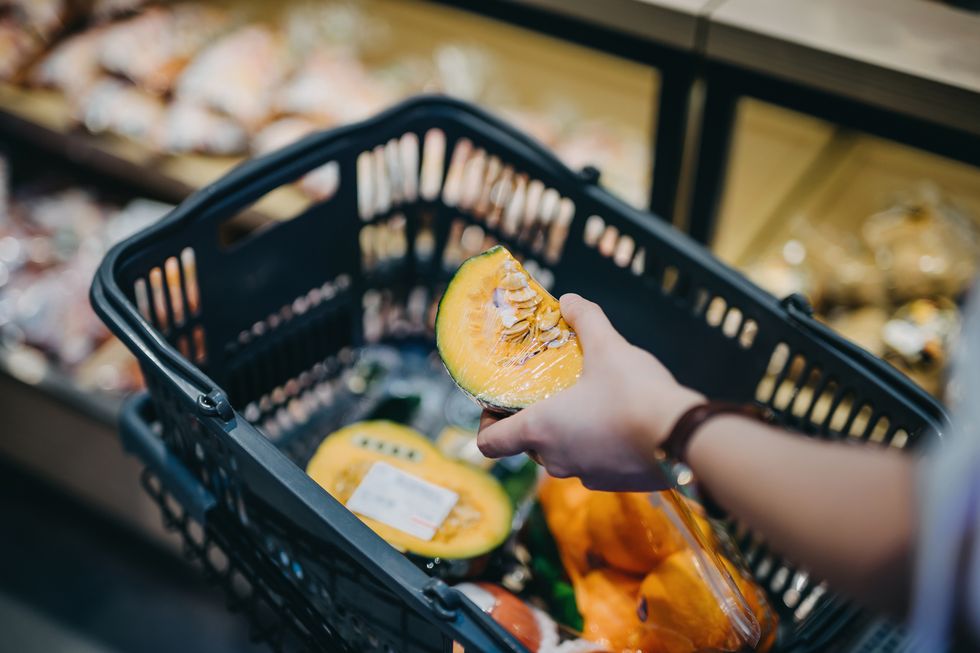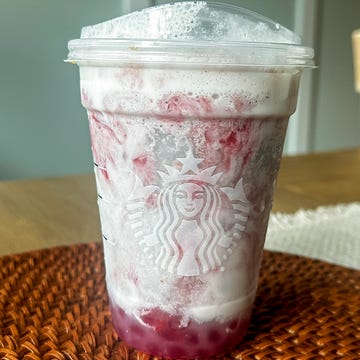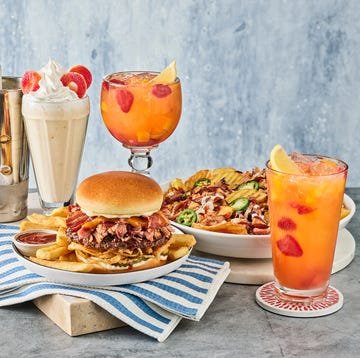Most produce takes quite the journey from the time it's harvested to when it hits grocery store shelves. It's picked, hopefully washed, packaged, and—unless it's super local—shipped from what could be thousands of miles away. Your bananas might pass through several pairs of hands and time zones before landing in your shopping cart.
Technology has evolved significantly to allow fruits and vegetables to travel across the country (or even the world) to get to your supermarket. Strawberries are specifically bred to withstand transit. Meticulous climate controls allow your food to be perfectly ripe when it reaches the shelves. Agricultural science has never been this advanced, but that doesn't mean quality controls can't still fall through the cracks.
We asked our readers who had experience working with produce purveyors to reveal all of the juicy details. Here are nine things you should know about your supermarket produce before embarking on your next shopping trip.
Supermarkets Don't Typically Wash Produce Before Produce It Hits Shelves
"While produce is usually washed by the farmer to remove dirt before shipping, it is NOT typically washed by the supermarket before putting on display," says Lisa Testa, M.S., Chief Nutrition Officer for Raw Generation. "Produce should always be thoroughly washed after purchasing from a grocery store, as it is handled by multiple people."
Theresa, a former Wal-Mart employee from Glen Burnie, Maryland, saw the produce arrive at the store on large pallets in trucks and hit the shelves without ever being washed. "I've seen it come in completely bad. I would never stop washing my produce," she says.
Even if the store you frequent gets its fruits and veggies from a reputable vendor, can you be sure that the products haven't been contaminated in transit? As one Reddit user pointed out, "If you assume it's clean when you pick it up, then you're assuming that everything went exactly as planned at every point in the process from tree to store."
Some Fruits & Vegetables Are Especially Risky
Before filling up your shopping cart, check the Environmental Working Group's "Dirty Dozen" list of popular fruits and vegetables with high pesticide levels. Strawberries, apples, nectarines, peaches, and bell peppers are some of the worst culprits. Melanie, a chef from Manchester, New Hampshire also named melons as risky for food-borne illness due to their porous skin, which can hold tons of bacteria and germs.
To get produce clean, follow our guide.
The Most Accessible Food Is Usually The Least Fresh
Chef Melanie explained the proper rotation procedure that produce managers should follow: The first batch of produce that goes on store shelves should be the first batch that's discarded to ensure freshness. In an effort to sell the older produce before it goes to waste, employees place the fresh stuff at the bottom of the stack and rotate the about-to-perish food to the top. The lesson? You might have to dig deep to find the best buys.
When it comes to buying fresh, ripe produce, Testa says fruit like melons, strawberries, and pineapples should have a naturally sweet odor when ripe.
Apples Could Be Months Old
No matter where they are in the stack, the pile of apples at the supermarket is probably quite old, although still safe to eat. Apples ripen during a very short period in the U.S. (between August and September), so keeping them in stores the rest of the year requires them to be treated with chemicals and kept in cold storage. In a warehouse setting, they often sit at least 9 to 12 months before they end up in your cart.
To extend the freshness of produce, such as apples, a tasteless and odorless wax coating might be applied to some produce.
"If produce is shiny, it has wax on it," says Testa. The FDA ensures the waxes used on produce are safe to eat.
Rotten Greens Can Make Their Way To The Salad Bar
In some stores, lettuce and other greens that are going bad in the produce department are sorted by employees and chopped up to sell at the in-store salad bar. Sure, there could be some salvageable parts, but if the greens are so wilted and mushy that they wouldn't sell whole, do you really want to be eating them?
Employees Might Not Follow Health Policies
The FDA's Food Code provides recommendations for food safety, such as employee hygiene, although state and local governments enact their own policies.
According to our reader, Melanie, supermarket staff should be wearing gloves and personal protective gear like a hair net or hat before handling ready-to-eat produce, though if you look around your local store, it's clear that that often doesn't happen.
Customers Can Also Spread Germs
We've heard some pretty horrific accounts of customers spreading germs at the grocery store. Many of us don't have clean hands when grocery shopping—we've touched the shopping cart and our phone or keys. From letting kids touch items, then put them back, to grown adults coughing or sneezing into their hands, then continuing to rummage through the produce, there are just too many factors out of your control that could lead to food contamination. "You simply cannot trust the fellow customer to make the right choices in what they are handling," Melanie says.
The Displays Are Designed To Trick You
In an interview with Modern Farmer, the former regional produce director for A&P supermarkets reveals the tricky psychology behind product placement in grocery stores. The staff counts on customers being drawn to central displays with top sale items, so they place regularly priced items on the "wings" to spark other purchases that you may not have planned on to begin with. Sneaky.
Supermarkets Might Jack Up Produce Prices
Tons of Reddit users have complained about the markup on fruits and veggies at local supermarkets, even though they're plentiful in their hometowns. One user said, "I live in peach mecca [South Carolina]. Peaches from my town are sold at high-end grocery stores for $$$$. I can buy them in summer for $5 a bucket ... I can go to my local market ... and there will be idiots buying the exact same thing I can buy out of the back of a truck only two parking lots away."














